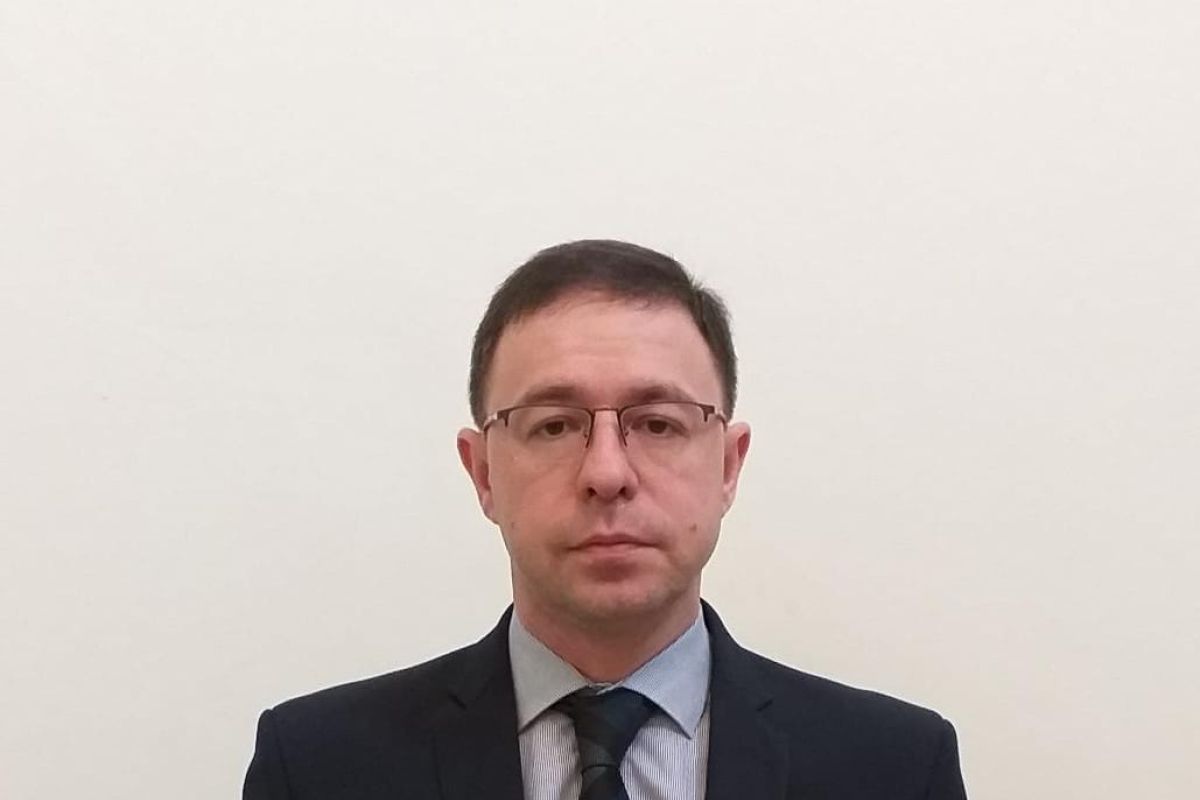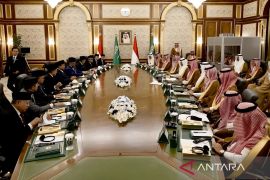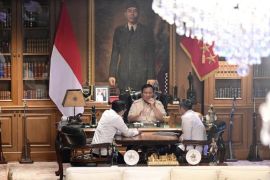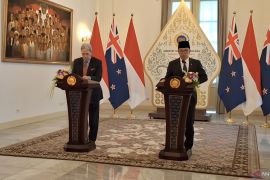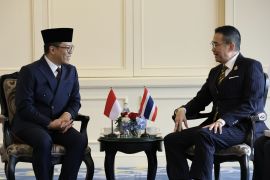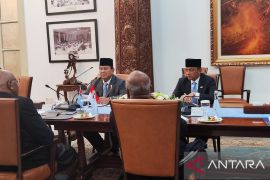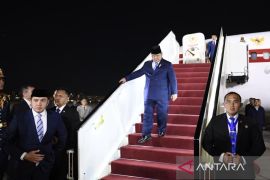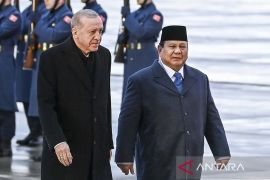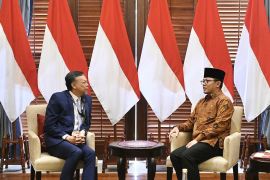“Our high-level political relations are based on friendship and cooperation. We cooperate very actively in international organizations; Indonesia and Azerbaijan always support each other in UN, OIC and other international organizations. Such support strengthens our partnership and creates stronger political ties,” Charge de Affairs of the Republic of Azerbaijan Embassy Ruslan Nasibov said to Antara here on Monday.
Nasibov spoke on topics ranging from the bilateral diplomatic relations to reforms in the Azerbaijan economic development and social and education sectors on the occasion of the 101st anniversary of the proclamation of the Azerbaijan Democratic Republic and 100 years of Azerbaijan Diplomatic Service, and its reception held on Monday.
Bilateral cooperation in the field of public services is also rapidly developing. Azerbaijan is sharing experiences of its own establishment and brand, called the “ASAN Service”, which is a “ONE STOP” system for all public services under one roof. The ASAN Service was awarded the United Nations Public Service Award 2015 for exemplary provision of public service.
The government of Azerbaijan keeps on implementing large-scale reforms in all fields. Azerbaijan’s rapid economic development has transformed the country. In the last 15 years, the level of poverty in the country dropped to 5.4 percent, while the unemployment rate is at 5 percent. Its economy grew more than three times, and 260 billion USD has been invested into the country.
With the population reaching 10 million people on April 6, 2019, foreign currency reserves hit 46 billion USD, five-fold higher than foreign debt. The gasification level of Azerbaijan is 95 percent and the country has been ranked 25th in the latest Doing Business Report by the World Bank, jumping 32 positions in one year and becoming one of the top 10 reformers in the world. Some 15,000 kms of roads and highways were built in Azerbaijan during the last 15 years and it is not surprising that the country is ranked 34th for quality of road infrastructure in the assessment of the Davos World Economic Forum. Azerbaijan has also invested in building bridges between Asia and Europe, and turned into an international transportation hub. “We have built a diversified railroad network connecting us with our neighbors. Among them, is the East-West transportation corridor with the modern Baku Sea Port, Baku-Tbilisi-Kars railway inaugurated in 2017 and connecting the region with Turkey, and the North-South transportation corridor connecting the Gulf, South and South-East Asia with Northern Europe,” Nasibov said.
Six international airports, along with the five-star Baku Heydar Aliyev International Airport are also contribution to the modern transportation infrastructure. Azerbaijan also has vast oil and gas reserves and has built multiple pipelines to transport its oil and gas to international markets.
Among the largest transnational energy projects are the Baku-Tbilisi-Jeyhan oil pipeline, Southern Gas Corridor, running from Baku through Georgia and Turkey to Europe up to Italy. Azerbaijan is becoming an indispensable partner for Europe and a regional hub connecting countries and continents.
Ethnic and religious groups
Azerbaijan is one of the world’s recognized centers of multiculturalism. All ethnic and religious groups live in Azerbaijan in peace and harmony. Being a member of the Organization of Islamic Cooperation and the Council of Europe, Azerbaijan launched the Baku Process in 2008 to strengthen dialogue, partnership and cooperation between the Muslim world and Europe. And after a few days on May 2, the 5th World Forum on Intercultural Dialogue will start in Baku.
“Coming to peace and security, I would like to mention the conflict between Armenia and Azerbaijan. Unfortunately, for more than 25 years, 20 percent of internationally recognized territories of Azerbaijan remain under Armenian occupation,” Nasibov said.
As a result of occupation, more than one million Azerbaijanis became refugees and IDPs. “Our people were subject to ethnic cleansing, our historical and cultural heritage has been destroyed and looted and natural resources in the occupied territories are being unlawfully exploited by Armenia,” he said.
The United Nations Security Council adopted four resolutions (822, 853, 874 and 884) demanding the immediate and unconditional withdrawal of Armenian armed forces from our territories. Unfortunately, these resolutions have not been implemented.
In the field of education and culture, he mentioned that “Indonesian Studies” was introduced at the faculty of International Relations and Management in 2007 and the Indonesian Research Centre was established in 2010 in the Azerbaijan University of Languages. Apart from that, Marshal Art of Pencak Silat is very popular in Azerbaijan.
“We are promoting cooperation between universities and educational institutions of Azerbaijan and Indonesia,” he said. Since 2018, Azerbaijan provides scholarships for all higher education levels in its universities for citizens of countries of the OIC and the Non-Alignment Movement. In the last few years, more Indonesian citizens have expressed interest to study in the universities of Azerbaijan.
Non-Aligned Movement
He noted that this year, Azerbaijan will assume chairmanship in the Non-Aligned Movement and would hold the Summit of NAM from October 21-26, 2019 under the theme, “NAM Baku Summit: Upholding the Bandung Principles, to ensure a concerted and adequate response to the challenges of a contemporary world”. “We hope that Indonesia as one of the NAM founders will actively participate in the Summit,” he said.
Nasibov said that this year, Azerbaijan for the first time joined the “Europe on Screen” film festival held in eight cities of Indonesia from 18 to 30 April. Already screened in Jakarta, Medan and Surabaya, a film from Azerbaijan, “Ali and Nino”, which has a team of producers comprising the famous Kris Thykier and Vice-President of Heydar Aliyev Foundation Leyla Aliyeva as Executive Producer, is based on the eponymous bestseller of Qurban Said.
“I hope all the initiatives of both countries in the sphere of politics, economy and culture will further develop and strengthen our relations and promote people-to-people contact between our nations,” Nasibov said.
Editor: Sri Haryati
Copyright © ANTARA 2019
